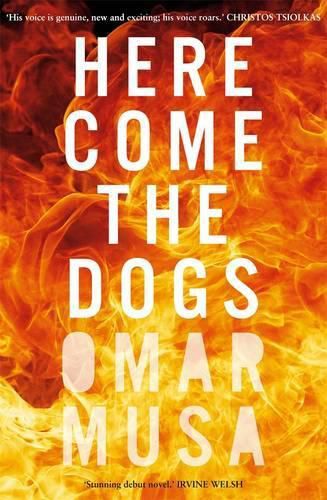Q&A with Omar Musa
Chris Gordon talks with Omar Musa about his revelatory and incendiary debut novel.
Your parents are both writers – your mum is a journalist and your dad is poet – and now you’ve made words your tools as well. What is your earliest memory of the power of language?
Always hard to say. Was it when I went to plays with my mum (she was a theatre reviewer) as a kid and was amazed at how a person could hold hundreds of people’s attention with just words and voice? Was it watching a good speaker at the mosque doing the same? Was it bedtime stories, the escapism of fantasy and myth? Was it when an older kid in the flats made everyone crack up with a well-told dirty joke? It could have been any one of those things.
You’re pretty prolific in your work and seem to be engaged in a range of genres. Are you writing every day, whether it’s music, poetry or stories ?
I try to scribble something down everyday in my notebook or in my phone, even if it’s just a snatch of conversation I heard on the train – a striking image, or a cool rhyme. I thought of a good rhyme today actually. ‘Aloe fresh’ would rhyme with ‘gallow steps’ really well, I reckon.
Here at Readings we are all excited about Here Come the Dogs. In particular, we are relieved there are alternative male voices emerging with both masculinity and friendship featuring strongly in your work. Did you set out to write about those themes on purpose, or did they just occur naturally?
It just kind of happened. The first scene I wrote was about a group of friends doing cocaine and the dog races, but I then expanded it to have more than fifteen points of view from people of all genders and races. I then whittled it back to the original group of mates. I am wary of this book being seen as something for men, about men, by a man – someone even tried to label it ‘Lad Lit’, which I bristled at. I wrote this book about Australia, for everyone. Yes, masculinity (and a certain type of destructive masculinity) is a major theme, but it’s more an examination of race, migration, loneliness, powerlessness and a combustible society.
The novel is kind of heartbreaking to read. Was it the same to write it?
It was definitely heartbreaking to write. There was one section where I was weeping as I wrote it. I think you have to go to really dark parts of the soul to write something like this, which was incredibly taxing, mentally and even physically. Sometimes I think as an artist you have to be brave, even if you don’t want to be, to work your way to the edge of the abyss and then just leap in. Hopefully it was all worth it.
Given the state of politics at the moment, do you reckon the general public are already angry enough, or do you hope your work will stir us all up? (I just want everyone to read the book!)
I hope it stirs up debate. It is an angry book, but there is love and redemption in it too. It is not just about us having to live under a cynical and conservative government, but also about the chaos that Australian society has become and perhaps always has been. There are no easy answers in this book, just a whole lot of writhing questions. In a certain way this book is a call for us to recognise that everybody’s stories are important (which is why I chose two characters from small minorities) and that if we just take the time to listen to each other, we can understand each other’s humanity a bit more.



